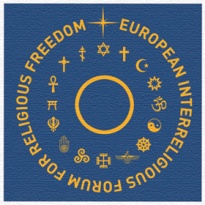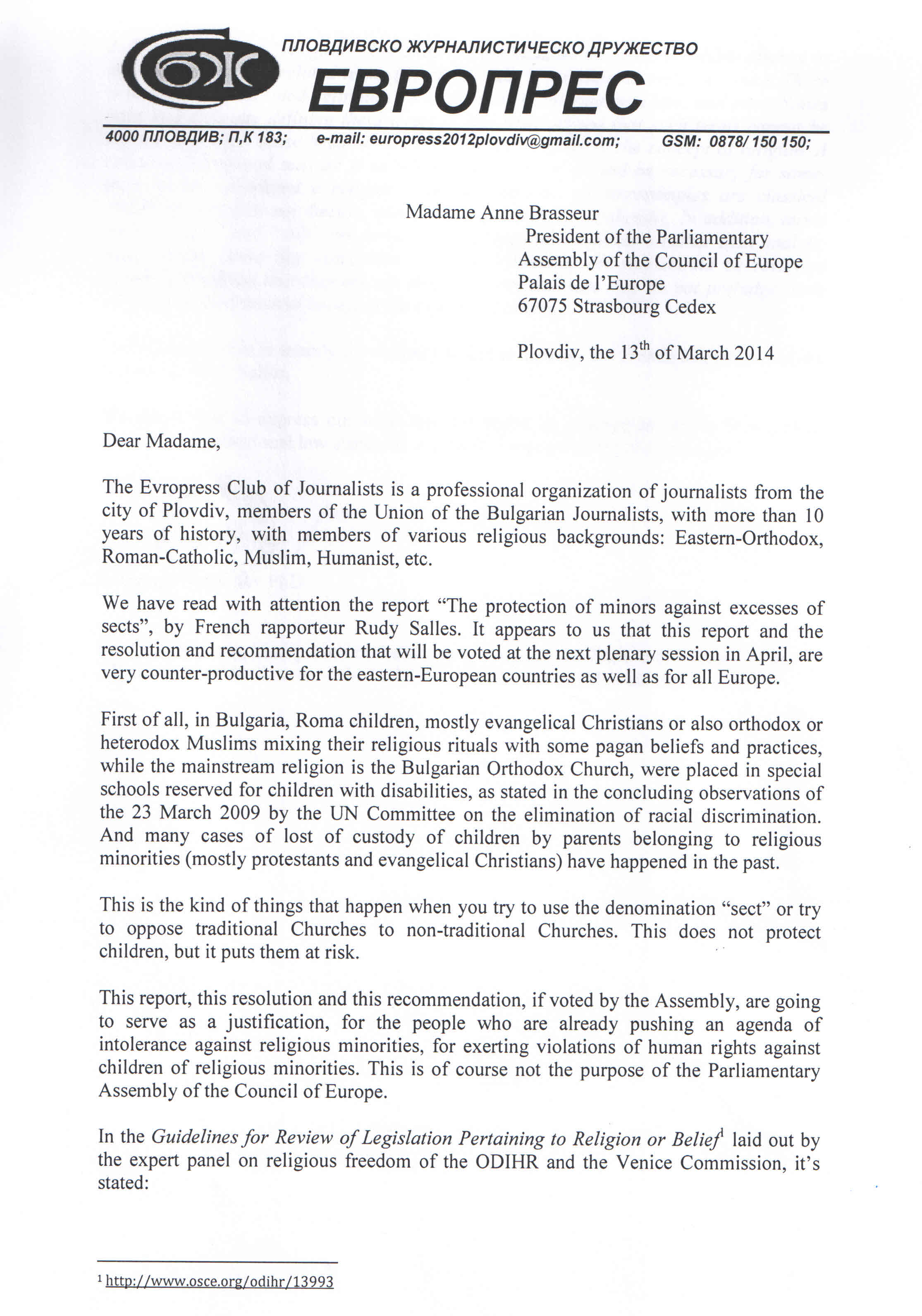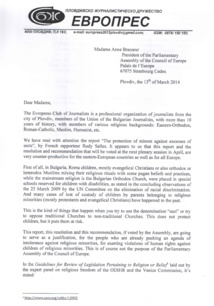Madame Anne Brasseur
President of the Parliamentary
Assembly of the Council of Europe
Palais de l’Europe
67075 Strasbourg Cedex
Plovdiv, the 13th of March 2014
Dear Madame,
The Evropress Club of Journalists is a professional organization of journalists from the city of Plovdiv, members of the Union of the Bulgarian Journalists, with more than 10 years of history, with members of various religious backgrounds: Eastern-Orthodox, Roman-Catholic, Muslim, Humanist, etc.
We have read with attention the report “The protection of minors against excesses of sects”, by French rapporteur Rudy Salles. It appears to us that this report and the resolution and recommendation that will be voted at the next plenary session in April, are very counter-productive for the eastern-European countries as well as for all Europe.
First of all, in Bulgaria, Roma children, mostly evangelical Christians or also orthodox or heterodox Muslims mixing their religious rituals with some pagan beliefs and practices, while the mainstream religion is the Bulgarian Orthodox Church, were placed in special schools reserved for children with disabilities, as stated in the concluding observations of the 23 March 2009 by the UN Committee on the elimination of racial discrimination. And many cases of lost of custody of children by parents belonging to religious minorities (mostly protestants and evangelical Christians) have happened in the past.
This is the kind of things that happen when you try to use the denomination “sect” or try to oppose traditional Churches to non-traditional Churches. This does not protect children, but it puts them at risk.
This report, this resolution and this recommendation, if voted by the Assembly, are going to serve as a justification, for the people who are already pushing an agenda of intolerance against religious minorities, for exerting violations of human rights against children of religious minorities. This is of course not the purpose of the Parliamentary Assembly of the Council of Europe.
In the Guidelines for Review of Legislation Pertaining to Religion or Belief laid out by the expert panel on religious freedom of the ODIHR and the Venice Commission, it’s stated:
2. The definition of “religion.” Legislation often includes the understandable attempt to define “religion” or related terms (“sects”, “cults”, “traditional religion”, etc.). There is no generally accepted definition for such terms in international law, and many States have had difficulty defining these terms. It has been argued that such terms cannot be defined in a legal sense because of the inherent ambiguity of the concept of religion. A common definitional mistake is to require that a belief in God be necessary for some- thing to be considered a religion. The most obvious counterexamples are classical Buddhism, which is not theistic, and Hinduism, which is polytheistic. In addition, terms such as “sect” and “cult” are frequently employed in a pejorative rather than analytic way. To the extent that legislation includes definitions, the text should be reviewed carefully to ensure that they are not discriminatory and that they do not prejudge some religions or fundamental beliefs at the expense of others.
Unfortunately, this is exactly the contrary which is done by the French Rapporteur of the report, Mr Rudy Salles.
We would like to express our wish that this report be rejected or utterly reviewed to respect the international law standards as regards Freedom of Religion or Belief.
Faithfully yours,
Dr Georgi Naydenov PhD
Copy of the original letter:
Dr Georgi Naydenov PhD
Copy of the original letter:









 More than 100 NGOs and personalities write to French Parliamentarians about the law on cults
More than 100 NGOs and personalities write to French Parliamentarians about the law on cults